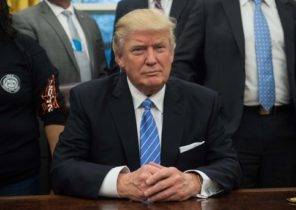Thanks to the intelligence and the charisma of Alexander the great was able to use the army, which is decades as patiently as a Swiss watchmaker, perfected by his father Philip II of Macedon. However, everything has to remember Alexander as he conquered most of Asia. And his predecessor is mainly remembered because of unclear circumstances of death, not for his merits as a ruler.
Something similar happened to Friedrich Wilhelm I and his son Frederick II. Father created a Foundation that allowed Prussia to reach an incredible military advantage, but it is not very serious son, to whom his father had an aversion, raised the infantry to the next level and ruthlessly defeated the Austrians, Russians and French in the middle of the XVIII century. Worker-ant did all the work, and the dragonfly got all the credit.
Of course, it was an unusual Ant and the Dragonfly. Father was very strict, courageous, passionate and faithful man, obsessed with military Affairs. The heir was a sensitive young man, a devotee of art, an eminent philosopher and historian. These two kings of the Hohenzollern dynasty had created a progressive state. Only a hundred years Prussia from one of the most oppressed and impoverished during the Thirty years war countries have become one of the leading military powers of Europe.
From father to son
On 16 December 1740, Frederick II at the head of the 27-thousand troops conquered Austrian Silesia. A huge success in the fight against the Holy Roman Empire, which up to this point was not too tough a small German kingdoms, gave Prussia the opportunity to enter the League of great European powers. The military genius of the Prussian king continued to impress Europe over the next years.
Even in case of defeat is always his infantry retreated in order. She unhesitatingly confronted the attacks of the Austrian cavalry, the best in the world at that time, under the pressure which gave up all the rest of the army. In addition, in terms of firepower and discipline, with Prussia not matched by any other state.
According to Christopher Clark’s book “Iron Kingdom: the rise and fall of Prussia” (Iron Kingdom: The Rise and Downfall of Prussia), king preferred oblique Stroy instead of traditional linear. “Instead of having to approach the enemy in a linear system, Frederick, where possible, tried to change the order of battle. One of the flanks, reinforced by cavalry, broke through the enemy positions before the other flank. The point of this was to crush the enemy, destroying his system, and not to attack him directly.”
To carry out such complex maneuvers in which the Prussian cavalry also played a key role, the monarch was required by the infantry, who were trained for several generations. Without the preliminary work of the father is unlikely to be able to achieve this level of maneuverability in disparate areas. Frederick William I left his hated son, whom he kept in custody, and with whom he treated very cruelly, powerful and completely transformed the infantry.
Friedrich Wilhelm always boasted that “the pleasure for him only his army.” He liked to wear military uniforms and observe the line exercises just for fun. When he ascended the throne in Prussia, one of the many German States, was a 40-thousand army. The monarch managed to put pressure on the small population of the country and the end of life to raise 80-thousand army. All thanks to campaigns on forced recruitment, which Prussia actually became a militarized state.
The complex mechanism of recruitment of recruits, called the system of cantons, introduced conscription for all single men of appropriate age from different regions of the country. Recruits have passed basic training, and then returned to their city. Before retirement they were in stock. This allowed the economy to continue to operate in times of peace.
In a period when most European States depended on foreign troops and mercenaries, two-thirds of the Prussian army were nationals from various parts of the country. Although the population of Prussia was only the thirteenth place in Europe, its army was the fourth largest.
Frederick William was obsessed with its foot soldiers used weapons of the same caliber, same ammunition, bayonets and daggers, and even straps for cartridge bags. But he had another important priority: the ability to quickly and consistently to move. One of the first innovations introduced to them, was very strict drill. His army had to be able to overcome difficult areas and at the same time to guarantee their full firepower.
The rate at which Prussian soldiers could get from one place to another, exceeded the rate of any other army. They walked at the rate of ninety steps per minute, keeping the system in perfect order. Approaching the enemy, they had reduced the speed to seventy steps per minute. If the Austrians had feat to overcome 120 km in ten days, which they did infrequently, for a Prussian soldier to overcome 180 kilometers in just seven days was a common thing.
“Movable walls”
During his reign, Frederick William followed the defensive strategy, therefore, it is the militancy of the son were able to demonstrate the advantages of the Prussian infantry from the point of view of discipline and offensive capabilities. In the battle of Mollwitz in April 1741 cavalry and Friedrich almost immediately left the field of battle thinking that victory will be for the Austrians. But the Prussian infantry didn’t think so. Not knowing that the king had gone, the soldiers continued to move forward, keeping the system in perfect order. According to the Austrian observer, they looked like “moving wall”, which concentrated fire on the front ranks of enemy infantry. Despite heavy losses, Prussia was able to win this battle and break the order of battle of the Austrian army.
Almost the same thing happened at the battle of Chotusitz in may 1742. The Prussian cavalry was defeated, and the infantry so just dispersed that could conduct a longitudinal fire against a bewildered Austrian units. And again the infantry were all saved.
It was only a matter of time before the talent corps will connect with the mad genius of Frederick, which, by defeats and victories was tempered in the war. With the years their capabilities have improved and the Prussian cavalry, joining together seamlessly, war machine.
Frederick II was supported by the army of severe discipline. “Soldiers should fear their officers more than all the dangers to which they are exposed,” said the man who without hesitation was beaten with a cane who tried to escape and shot at the units that didn’t comply with his orders. To provide good training to the soldiers, the Hohenzollerns created the most professional officer corps in Europe. The king made the young aristocrats to serve as officers and lead the soldiers of the first series. French nobles were not near with his soldiers, unlike the Prussian, who, as the officers were always with their offices and watched them as well as did not visokogradnya sergeants major. Takes into account all, even the smallest details of uniforms and weaponry.
As a reward for those efforts the Frederick granted military privileges from the point of view of the social hierarchy of the country. Regular Lieutenant or captain occupied a higher position than any senior civil servant.
Decline. The worst period
Frederick II had many advantages, and he was very progressive for its time. However, his plans were not very realistic, and he often blamed others for their failures. His inclination to risk all that he has, never left him till the old age. Despite the fact that the first victory of a king is allowed to expand Prussia and made it one of the great powers, the subsequent defeat in the Seven years war weakened infantry.
Frederick complained in the presence of a British Ambassador that his “current army was not as good as in previous military campaigns. Most of his army can only show the enemy from a distance”. The next generation was even less effective.
Napoleon himself was convinced, as Frederick II had weakened his own army. The Prussian army inherited by Frederick William II and Frederick William III outlived its usefulness and in the extreme degree depended on mercenaries. Officers were still obsessed with combat training, which after the introduction of innovations by Napoleon, the Prussian army lost all their skill. In contrast to France, Prussia was virtually no snipers.
Austria is not dragged into the abyss of the French revolution thanks to a very stable military structure, and Prussia Napoleon erased in a powder, and treated her with neglect and war, and diplomatic negotiations. The Prussian army as such was able to fully recover only in the XIX century, when the infantry again won an important victory during [the future Chancellor of a United Germany] Otto von Bismarck, in fact, rising at the head of the Prussian state during a live monarch.







